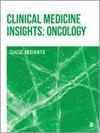格鲁吉亚妇女叶酸代谢途径中多个单核苷酸多态性与乳腺癌风险之间的关系:病例对照研究
IF 1.9
4区 医学
Q3 ONCOLOGY
引用次数: 0
摘要
背景:叶酸代谢途径在 DNA 合成、甲基化和修复中发挥着不可或缺的作用。亚甲基四氢叶酸还原酶(MTHFR)和亚甲基四氢叶酸脱氢酶(MTHFD1)都是参与这一途径的酶,其编码基因的单核苷酸多态性(SNPs)对DNA表达有调节作用。本研究旨在调查格鲁吉亚妇女的 MTHFR C677T(rs1801133)和 MTHFD1 G1958A(rs2236225)多态性与罹患乳腺癌风险之间的关系。方法:研究人员对乳腺癌确诊病例和健康匹配对照组中的 MTHFR C677T 和 MTHFD1 G1958A SNP 进行了病例对照研究。研究采用实时聚合酶链反应(PCR)对 SNP 进行基因分型。病例个体的病理报告是在手术后获得的,以获取癌症特征数据。结果:对 MTHFR C677T SNP 的统计分析显示,在超显性模型中,CT 基因型会使乳腺癌风险增加 2.17 倍。MTHFD1 G1958A SNP的统计分析显示,GA基因型在显性模型中增加乳腺癌风险4.12倍,在过显性模型中增加2.41倍。结论:在格鲁吉亚妇女中,乳腺癌似乎与 MTHFR C677T 的 CT 基因型和 MTHFD1 G1958A 的 GA 基因型有显著的统计学关联。本文章由计算机程序翻译,如有差异,请以英文原文为准。
Association Between Multiple Single Nucleotide Polymorphisms in Folate Metabolism Pathway and Breast Cancer Risk in Georgian Women: A Case-Control Study
Background:The folate metabolism pathway plays an integral part in DNA synthesis, methylation, and repair. Methylenetetrahydrofolate reductase (MTHFR) and methylenetetrahydrofolate dehydrogenase (MTHFD1) are both enzymes that are involved in this pathway, and the single nucleotide polymorphisms (SNPs) in genes coding for them have modulatory effects on DNA expression. This study aimed to investigate the relationship between MTHFR C677T (rs1801133) and MTHFD1 G1958A (rs2236225) polymorphisms and the risk of developing breast cancer in Georgian women.Methods:A case-control study was performed examining the MTHFR C677T and MTHFD1 G1958A SNP in breast cancer–confirmed cases and healthy matched controls. Real time-polymerase chain reaction (PCR) was used to genotype SNPs. The case individuals’ pathology reports were obtained following surgeries for cancer characteristic data. Statistical analysis was performed to investigate the significance of the acquired data.Results:Statistical analysis of MTHFR C677T SNP revealed that the CT genotype increased the risk of breast cancer by 2.17 folds in the over-dominant model. Statistical analysis of MTHFD1 G1958A SNP showed that the GA genotype increased the risk of breast cancer by 4.12 folds in the codominant model and 2.41 folds in the over-dominant model. No statistically significant link was found between genotypes and lymph node status, however, patients with the CT genotype had higher percentages of proliferative activity.Conclusions:Breast cancer seems to have a statistically significant association with the CT genotype in MTHFR C677T and the GA genotype in MTHFD1 G1958A in Georgian women.
求助全文
通过发布文献求助,成功后即可免费获取论文全文。
去求助
来源期刊

Clinical Medicine Insights-Oncology
Medicine-Oncology
CiteScore
2.40
自引率
4.50%
发文量
57
审稿时长
8 weeks
期刊介绍:
Clinical Medicine Insights: Oncology is an international, peer-reviewed, open access journal that focuses on all aspects of cancer research and treatment, in addition to related genetic, pathophysiological and epidemiological topics. Of particular but not exclusive importance are molecular biology, clinical interventions, controlled trials, therapeutics, pharmacology and drug delivery, and techniques of cancer surgery. The journal welcomes unsolicited article proposals.
 求助内容:
求助内容: 应助结果提醒方式:
应助结果提醒方式:


